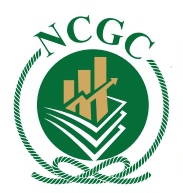The National Credit Guarantee Company Limited (“NCGC” or the “Company”) is set to commence operations on July 1, 2025, as a specialised financial institution established to unlock access to credit and drive inclusive economic growth across Nigeria’s real economy.
With an initial capital commitment of ₦100 billion, recently announced by President Bola Ahmed Tinubu, the NCGC is positioned to reshape how Micro, Small and Medium Enterprises (MSMEs), manufacturers, and strategic sectors access much-needed financing.
For decades, Nigerian businesses especially micro, small and medium scale enterprises have faced significant challenges accessing loans due to collateral barriers and high-risk perception. NCGC is bridging that gap.
By providing partial credit coverage, the company will offer banks and other financial institutions a safety net, allowing them to lend more confidently to eligible borrowers, particularly in underserved and high-growth sectors.
NCGC does not lend directly to businesses. Instead, it partners with Participating Financial Institutions (PFIs) including commercial banks, microfinance banks, fintechs, CBN-licensed institutions and other development financial institutions to share lending risk and support broader financial inclusion.
The model is simple but powerful: enable lenders to do more by reducing the risk that prevents them from reaching viable, underfunded borrowers.
Key Beneficiaries
NCGC’s framework targets a wide range of beneficiaries:
*MSMEs across all regions
*Local manufacturers and value chain operators
*Credit consumers
*Youth and women-led enterprises
*Export-oriented and non-interest-based businesses
*Large enterprises within priority sectors
Our Core Services
NCGC offers three primary services:
*Partial Credit Guarantees – Covering up to 60% of outstanding principal on qualifying loans.
*Co-Guarantees – Collaborating with other institutions to jointly share lending risk.
*Technical Assistance – Providing capacity-building support for lenders and borrowers to enhance credit readiness and portfolio quality.
Guiding Principles
The company’s operations are underpinned by globally accepted credit risk-sharing principles:
*Risk-sharing, not risk transfer
*Strategic issuance to preserve borrower discipline
*Tiered eligibility to promote inclusion and developmental impact
*Full alignment with CBN regulations
These principles ensure every guarantee issued is responsible, irrevocable, and impact-driven.
Product Suite
NCGC offers a diverse set of guarantee products:
*Individual Guarantees – For high-value, project-specific loans.
*Portfolio Guarantees – For pool of loans in homogeneous sectors (e.g., agro-processing, creative economy).
*Performance Bond Guarantees – For businesses seeking to meet contract-based obligations.
Sectoral Coverage
Our guarantees are available across critical sectors including:
*Agriculture & Agribusiness – From inputs to processing and logistics.
*Renewable Energy & Green Economy – Including solar, clean tech, and mini-grids.
*Manufacturing & Infrastructure – Targeting value-added production and light industry.
*Digital & Tech Enterprises – Including startups, fintechs, SaaS, and logistics tech.
*Solid Minerals and Metal – Metal fabrication, recycling, beneficiation, coating, etc.
*Textile – Fashion, leather works, jewelry
*Export-Oriented SMEs – Especially in non-oil sectors.
*Women & Youth Enterprises – Including all women-owned businesses (promoter age not more than age 65).
*Islamic Enterprises (coming soon) – Non-interest, Shariah-compliant financing models.
A New Era of Credit Confidence
NCGC is more than just a financial institution; it is a catalyst for Nigeria’s economic transformation. By incentivizing lenders to serve more businesses safely and sustainably, NCGC is enabling job creation, driving productivity, and fostering a more self-reliant economy.
Its operational model is built to:
*Unlock access to finance for real sector growth
*Create jobs and alleviate poverty
*Drive inclusive economic outcomes
*Strengthen the MSME ecosystem
*Build trust and scale in Nigeria’s credit markets
 Startrend International Magazine For Your Latest News And Entertainment Gists
Startrend International Magazine For Your Latest News And Entertainment Gists





